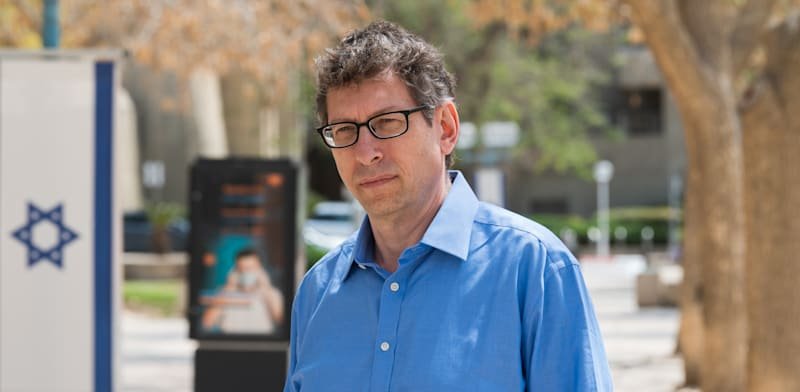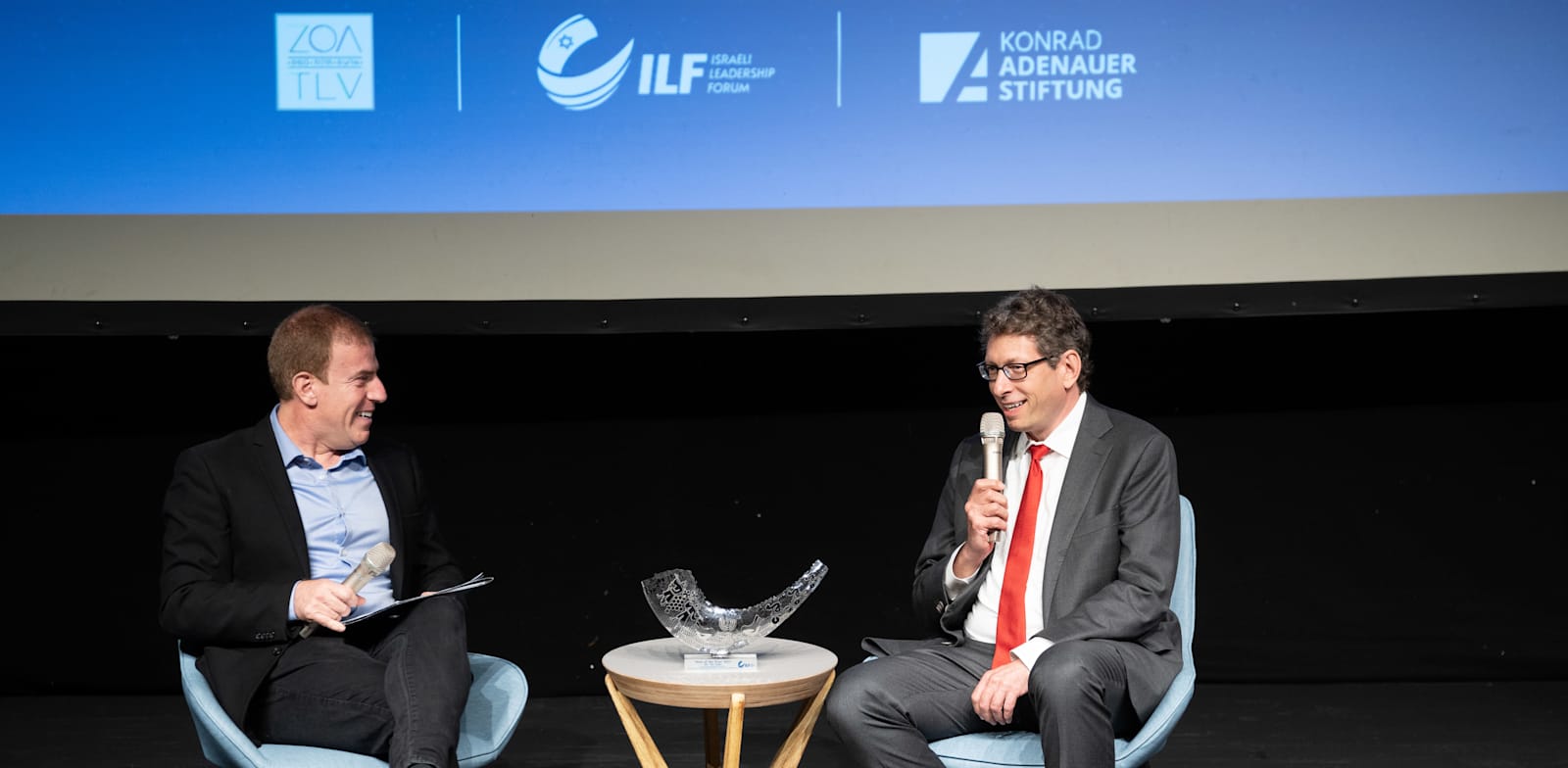There are hardly any drug development companies in Israel today that are based on deep science and well-funded from the outset, but now a gene editing company called Averna Therapeutics (formerly Exsilio Therapeutics) is setting out after raising $82 million last summer and with one name that opens doors: Dr. Tal Zaks, who served as chief medical officer at Moderna, when it developed and launched its Covid vaccine.
Zaks was a familiar face in the biotech industry during the Covid pandemic, and due to the meteoric rise in Moderna's share price, he also became very wealthy. Following a signed agreement to sell shares as soon as they passed a certain price, there were times when he was becoming $1 million richer each week. The STAT website estimated he accumulated tens of millions of dollars in capital at Moderna.
He left Moderna in February 2021, and the share price continued to break many more records, but Zaks claimed at the time that the company was entering its commercial phase, while he was looking for projects with a greater scientific challenge, like Averna.
The early stage company is developing a new approach to gene editing to treat rare genetic diseases. It does this using mRNA, the technology underlying the Covid vaccines, so the fact that Zaks is leading Averna has sparked a lot of interest in the field. In the future, it has the potential to develop drugs for cancer and more common autoimmune diseases.
Most of the healthcare companies that have been established in Israel in recent years have been in the fields of medical devices, digital health, or artificial intelligence for drug development. These companies usually start with a small initial investment and must achieve a lot with very little until they prove themselves and gain momentum.
Averna is a different story. The company was founded by Roy Amariglio, formerly a researcher at the Weizmann Institute of Science and an executive at pharmaceutical company Bayer, and today an investor in the OrbiMed venture capital fund.
Zaks tells "Globes," "Roy identified a scientific opportunity that had not been exploited properly. He mobilized OrbiMed partner Erez Chimovits and together they located the founding team, one of them is Israeli – Erez Levanon.
Zaks met him in 2023. Since leaving Moderna, he had served in several positions including a director at Teva Pharmaceuticals and a partner at OrbiMed. "I was enthusiastic about the technology and thought this was a situation where you could raise significant capital and build a more established company," he says. "I joined the company as executive chairman and interim CEO, and we raised the Series A financing round."
RELATED ARTICLES
The company was initially called Exsilio and is now being unveiled under the new name Averna, and also with a new CEO, Tom Barnes, former CEO of oRNA Therapeutics and today an investor in the MPM fund.
Investment from a rival company
"We are developing the last missing tool in the gene editing toolbox," Barnes tells Globes. "In recent years, drugs based on RNAi, a type of RNA that prevents gene expression, have been approved, and in 2023, a drug based on CRISPR was approved, a kind of genetic scissors that can cut and remove a piece of a gene, but they are limited in the amount of DNA they can put into a cell and there are concerns about safety issues.
"When we talk about introducing a new gene, it is usually done using a virus that carries the desired DNA and inserts it into the genome. But we have discovered in recent years that you need to bring a lot of genetic material with a large amount of virus into the cell to perform successful editing, and sometimes it is difficult for the body.
"Some of the gene editing in medicine is done outside the body today, for example CAR-T therapy for cancer, but this approach is only relevant for a small number of applications.
"The Covid vaccines basically showed that it is possible to bring genetic data to cells and make them produce a genetic sequence that is not in the genome, but temporarily. We want to do this with RNA that is permanently copied into the DNA. We have developed this ability over the last three years."
Barnes says that when the idea was presented to him, he was not sure that it would be applicable, but initial experiments conducted by the company convinced him that it was possible. "I was convinced that it was possible to work with this approach and scale it up, although we are not quite there yet."
The company is not yet disclosing which genetic diseases its technology will be used for, or exactly how it works, for fear of competition from companies trying to solve the same problem in different ways. The company has many competitors, but CRISPR Therapeutics, ostensibly a rival of Averna, is one of the investors in the company’s Series A round, evidence that it sees it as its potential next generation.
Zaks explains that the company’s product inserts the new DNA into areas of the cell that are considered protected spaces, so that the genes cannot replicate in unwanted places and damage the cell’s function. He also stresses that the company’s technology can perform gene therapy more than once with less fear of an immune response, which allows it to insert more genetic data.
"This type of gene editing should also allow for the treatment of diseases whose origin is not genetic or whose origin cannot be identified in one particular gene," says Saks. "As long as the problem can be corrected or helped, say, by producing more of a certain protein, and we know how to build a gene that produces that protein, then it is potentially possible to develop a drug."
Averna has 35 employees, most of them in Israel. The aim is to keep the research in Israel, and share development between Israel and the US. The money already raised is to move the company to the preclinical trial stage.
It's no small matter to do all this from Israel
Saks: "Right, and it hasn't been an easy year. I give a lot of credit to the team and their resilience, but I admit that the challenge was very difficult, on all fronts. Both personally for the employees who were affected by the war in various ways, also in terms of the company's communication with the team from abroad when there are no flights and it's difficult to meet. I'm optimistic and believe that things are going to get better, the biotech market itself is also getting better, and now Tom is with us."
Moderna, the company you left, has had a bit more difficulty in the last two years. They haven't yet managed to replicate the success of the Covid vaccines.
"Moderna is an amazing company, and they were pioneers and showed us the way too. Today I can't speak for them. I can't speak for Teva, where I'm a director, except to say that I'm so proud of them for the recovery they've made."
A market in its infancy
The field of gene editing has only begun to realize its potential in recent years, more than 20 years after the genome was decoded, and about a decade after the invention of the CRISPR-Cas9 technology that made gene editing accessible to laboratories around the world.
In 2017, the first technology for gene editing of cells outside the body and their return (CAR-T) was approved, and today this treatment market is worth billions of dollars annually. The FDA has also approved two gene-editing-based drugs for muscular dystrophy despite controversy over their effectiveness, and in 2023, CRISPR Therapeutics received approval for a CRISPR-based drug to treat the blood diseases beta thalassemia and sickle cell anemia. There are currently dozens of other products in clinical trials that use gene editing using different technologies.
Published by Globes, Israel business news – en.globes.co.il – on January 28, 2025.
© Copyright of Globes Publisher Itonut (1983) Ltd., 2025.


